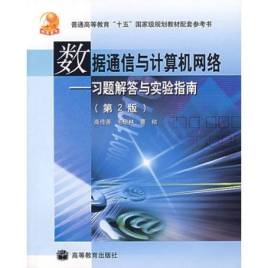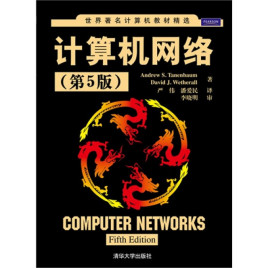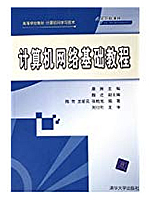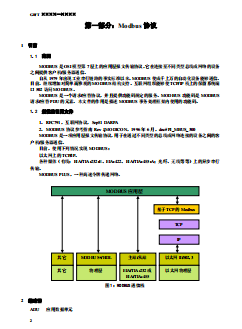本书是国内外使用最为广泛的计算机网络经典教材。全书按照网络协议模型(物理层、数据链路层、介质访问控制子层、网络层、传输层和应用层),自下而上系统地介绍了计算机网络的基本原理,并给出了大量实例。在讲述各网络层的同时,还融合进了近年来迅速发展起来的各种网络技术,如Internet、SONET、ADSL、CDMA、WLAN和蓝牙等。另外,针对当前计算机网络的发展现状以及计算机安全的重要性,本书用了一整间的篇幅对计算机安全进行了深入讨论。
本书的适用对象很广泛。对于学习计算机网络课程的本科生以及研究生,本书都可以作为教材或教学参考书,每一章后面的大量练习题,可用于课程作业或者复习要点。对于从事网络研究、网络工程以及使用和管理网络的科研和工程技术人员,本书也是一本很有价值的参考读物。
目录
- Prefaceix
- Chapter1Introduction1
- Chapter2SwitchingAlgebraandLogicCircuits45
- Chapter3TheKarnaughMap129
- Chapter4FunctionMinimizationAlgorithms211
- Chapter5LargerCombinationalSystems261
- Chapter6AnalysisofSequentialSystems363
- Chapter7TheDesignofSequentialSystems409
- Chapter8SolvingLargerSequentialProblems485
- Chapter9SimplificationofSequentialCircuits533
- AppendixALaboratoryExperiments583
- AppendixBAnswerstoSelectedExercises612
- AppendixCChapterTestAnswers635
- Index647
- v
- CONTENTS
- Prefaceix
- Chapter1
- Introduction1
- 1.1
- ABriefReviewofNumberSystems3
- 1.1.1OctalandHexadecimal6
- 1.1.2BinaryAddition8
- 1.1.3SignedNumbers10
- 1.1.4BinarySubtraction13
- 1.1.5BinaryCodedDecimal(BCD)15
- 1.1.6OtherCodes16
- 1.2
- TheDesignProcessforCombinational
- Systems19
- 1.3
- Don’tCareConditions22
- 1.4
- TheDevelopmentofTruthTables23
- 1.5
- TheLaboratory27
- 1.6
- SolvedProblems28
- 1.7
- Exercises37
- 1.8
- Chapter1Test42
- Chapter2
- SwitchingAlgebraandLogic
- Circuits45
- 2.1
- DefinitionofSwitchingAlgebra46
- 2.2
- BasicPropertiesofSwitching
- Algebra49
- 2.3
- ManipulationofAlgebraicFunctions51
- 2.4
- ImplementationofFunctionswithAND,OR,
- andNOTGates56
- 2.5
- FromtheTruthTabletoAlgebraic
- Expressions61
- 2.6
- IntroductiontotheKarnaughMap65
- 2.7
- TheComplementandProductofSums73
- 2.8
- NAND,NOR,andExclusive-OR
- Gates75
- 2.9
- SimplificationofAlgebraicExpressions82
- 2.10
- ManipulationofAlgebraicFunctionsand
- NANDGateImplementations90
- 2.11
- AMoreGeneralBooleanAlgebra98
- 2.12
- SolvedProblems100
- 2.13
- Exercises119
- 2.14
- Chapter2Test126
- Chapter3
- TheKarnaughMap129
- 3.1
- MinimumSumofProductExpressionsUsing
- theKarnaughMap133
- 3.2
- Don’tCares146
- 3.3
- ProductofSums150
- 3.4
- MinimumCostGateImplementations154
- 3.5
- Five-andSix-VariableMaps156
- 3.6
- MultipleOutputProblems163
- 3.7
- SolvedProblems174
- 3.8
- Exercises202
- 3.9
- Chapter3Test207
- Chapter4
- FunctionMinimization
- Algorithms211
- 4.1
- Quine-McCluskeyMethodfor
- OneOutput211
- 4.2
- IteratedConsensusforOneOutput214
- 4.3
- PrimeImplicantTablesforOneOutput218
- 4.4
- Quine-McCluskeyforMultipleOutput
- Problems226
- 4.5
- IteratedConsensusforMultipleOutput
- Problems229
- 4.6
- PrimeImplicantTablesforMultipleOutput
- Problems232
- vi
- 4.7
- SolvedProblems236
- 4.8
- Exercises257
- 4.9
- Chapter4Test258
- Chapter5
- LargerCombinational
- Systems261
- 5.1
- DelayinCombinationalLogicCircuits262
- 5.2
- AddersandOtherArithmeticCircuits264
- 5.2.1
- Adders264
- 5.2.2
- SubtractorsandAdderSubtractors268
- 5.2.3
- Comparators269
- 5.3
- Decoders270
- 5.4
- EncodersandPriorityEncoders276
- 5.5
- Multiplexers278
- 5.6
- Three-StateGates281
- 5.7
- GateArrays—ROMs,PLAs,andPALs282
- 5.7.1
- DesigningwithRead-Only
- Memories287
- 5.7.2
- DesigningwithProgrammableLogic
- Arrays288
- 5.7.3
- DesigningwithProgrammableArray
- Logic291
- 5.8
- LargerExamples294
- 5.8.1
- Seven-SegmentDisplays(FirstMajor
- Example)295
- 5.8.2
- AnErrorCodingSystem302
- 5.9
- SolvedProblems306
- 5.10
- Exercises346
- 5.11
- Chapter5Test358
- Chapter6
- AnalysisofSequential
- Systems363
- 6.1
- StateTablesandDiagrams365
- 6.2
- LatchesandFlipFlops367
- 6.3
- AnalysisofSequentialSystems376
- 6.4
- SolvedProblems386
- 6.5
- Exercises399
- 6.6
- Chapter6Test407
- Contents
- vii
- Chapter7
- TheDesignofSequential
- Systems409
- 7.1
- FlipFlopDesignTechniques414
- 7.2
- TheDesignofSynchronousCounters430
- 7.3
- DesignofAsynchronousCounters440
- 7.4
- DerivationofStateTablesandState
- Diagrams443
- 7.5
- SolvedProblems458
- 7.6
- Exercises475
- 7.7
- Chapter7Test483
- Chapter8
- SolvingLargerSequential
- Problems485
- 8.1
- ShiftRegisters485
- 8.2
- Counters491
- 8.3
- ProgrammableLogicDevices(PLDs)498
- 8.4
- DesignUsingASMDiagrams503
- 8.5
- One-ShotEncoding507
- 8.6
- HardwareDesignLanguages508
- 8.7
- MoreComplexExamples511
- 8.8
- SolvedProblems517
- 8.9
- Exercises527
- 8.10
- Chapter8Test531
- Chapter9
- SimplificationofSequential
- Circuits533
- 9.1
- ATabularMethodforStateReduction535
- 9.2
- Partitions542
- 9.2.1
- PropertiesofPartitions545
- 9.2.2
- FindingSPPartitions546
- 9.3
- StateReductionUsingPartitions549
- 9.4
- ChoosingaStateAssignment554
- 9.5
- SolvedProblems560
- 9.6
- Exercises576
- 9.7
- Chapter9Test580
- viii
- Contents
- AppendixA
- LaboratoryExperiments583
- A.1
- HardwareLogicLab583
- A.2
- WinBreadboard.and
- MacBreadboard.587
- A.3
- IntroductiontoLogicWorks4589
- A.4
- IntroductiontoAlteraMax+plusII594
- A.5
- ASetofLogicDesignExperiments598
- A.5.1
- ExperimentsBasedonChapter2
- Material598
- A.5.2
- ExperimentsBasedonChapter5
- Material600
- A.5.3
- ExperimentsBasedonChapter6
- Material603
- A.5.4
- ExperimentsBasedonChapter7
- Material605
- A.5.5
- ExperimentsBasedonChapter8
- Material606
- A.6
- LayoutofChipsReferencedintheText
- andExperiments607
- AppendixB
- AnswerstoSelected
- Exercises612
- AppendixC
- ChapterTestAnswers635
- Index647



















